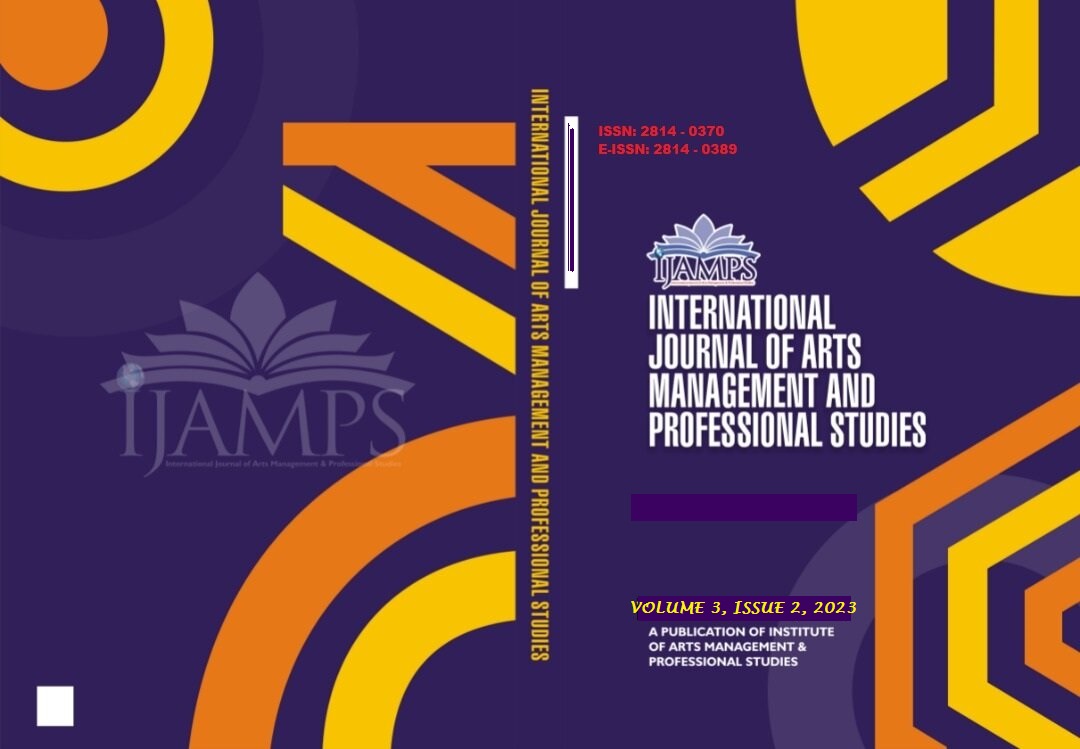
PERCEPTIONS OF SECONDARY SCHOOL TEACHERS ON THE IMPACT OFEXTRACURRICULAR PROGRAMMESON STUDENTS’ ACADEMIC PERFORMANCE IN TARABA STATE, NIGERIA
Nwosu, Patience Okwudiri, PhD Patsydearest@gmail.com 08086404999 Awu, Christopher Odida Christopherawo@gmail.com) 08170870608 Babbaji, Andy Edwin Babaji12345.eb@gmail.com And Joseph, Samuel Josamuel192@gmail.com Department Of Educational Foundations T
Volume 3, Issue 2, September 2023
This study investigated perceptions of secondary school teachers on the impact of extracurricular activities on students’ academic performance in Taraba State, Nigeria. Three research objectives, three research questions and one null hypothesis guided the study. The descriptive survey research design was used for the study. From a population of 4,857 subjects, a sample of 384 was chosen through multistage sampling procedure. The instrument used to generate data for the study was a questionnaire titled “Extracurricular Programmes and Students’ Academic Performance Questionnaire (EPSAPQ)” which was adequately validated by experts, with a reliability coefficient of 0.81, obtained through split half method. Data generated from the study was analyzed using mean and standard deviation to answer the research questions, while chi-square statistics was used to test the null hypothesis at 0.05 level of significance. The study made the following findings: extracurricular activities available in Taraba State secondary schools include football sports, religious activities, drama club, debating societies and the Press Club while Music Clubs and JETS clubs were least functional;different types of extracurricular activities carried out in Taraba State secondary schools have relevance to students’ academic work; and that extracurricular programmes carried out have significant impact on students’ academic performance in Taraba State secondary schools.The study therefore recommended among others that while principals of schools should endeavour to implement ECAs in schools in order to give students a variety of choices to develop their abilities in line with the provisions of the National Policy on Education, government should also provide resources through the provision and maintenance of adequate school facilities to enable principals of secondary schools implement these ECAs effectively